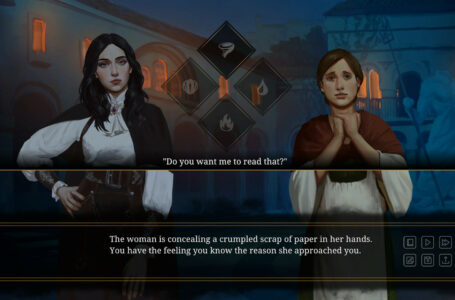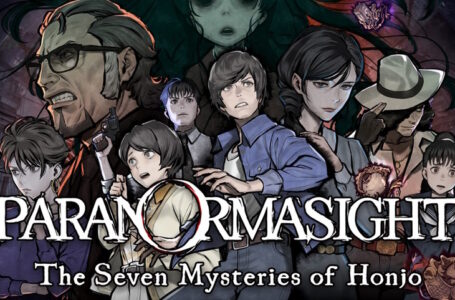Inside the head of a demon in Full Metal Daemon Muramasa
Full Metal Daemon Muramasa is pretty up-front about the fact that a core part of its narrative is going to be about morality and the concepts of “good” and “evil” — along with how the world appears naturally inclined towards seeking a balance between these things rather than tilting too far in one way or the other.
This subject matter is particularly explored in the fourth chapter of the visual novel, in which there are some seriously “morally grey” things going on from all angles. We’re provided with a fair amount more insight about how protagonist Kageaki Minato found himself in the position of a tortured soul bound to the cursed blade Muramasa, and given the opportunity to see exactly what this “balance” means for everyone around.
Like the previous chapters of Full Metal Daemon Muramasa, the fourth chapter is largely a self-contained episode. In this instance — at least in my playthrough, anyway, as owing to the death of a major character at the end of chapter three, at this point I can only assume things diverge somewhat at this point — it focuses on Minato and Ichijo Ayane’s attempts to track down what the Yamatoan oppressors Rokuhara are up to on the island of Enoshima, long regarded as a scenic holiday destination but recently declared completely off-limits.
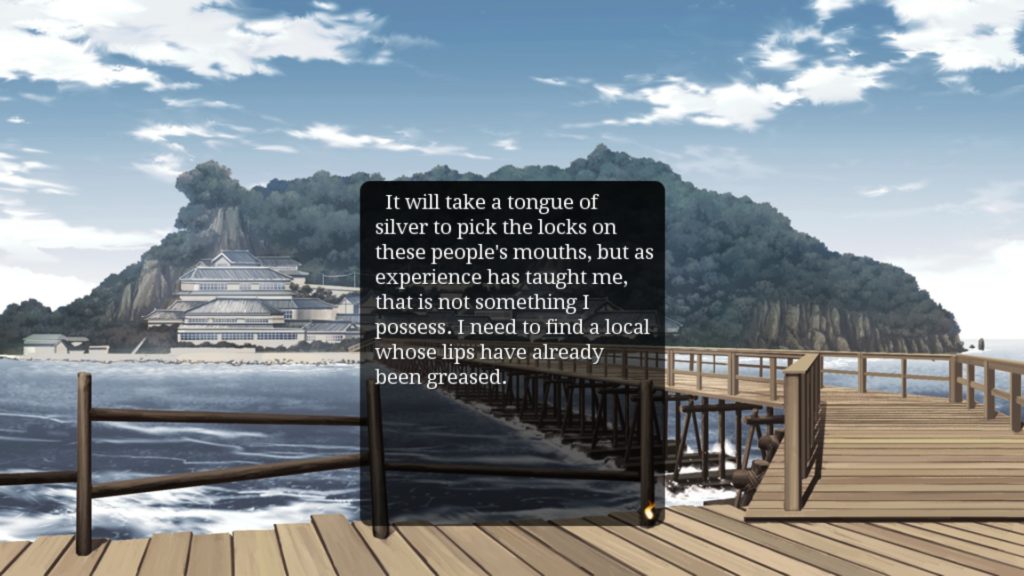
Upon arrival at Katase, a town on the other side of the “land bridge” that leads to Enoshima, Minato and Ayane are surprised to discover that despite it being the middle of November, Katase is enjoying a somewhat unseasonal summer heat wave — and it appears to have been this way for a while. Oddly, though, nothing about this odd phenomenon appears to have been reported by the press, though holidaymakers have still found out about it somehow, since the place is filled with tourists.
The power that the ability to control the flow of information holds is a theme that comes back quite frequently over the course of Full Metal Daemon Muramasa, and this fourth chapter is a good example of this. Minato and Ayane show up at Katase in the full knowledge that responding to the report they received is more likely a Rokuhara trap than anything else — but Minato also cannot ignore the possibility that following his gut instinct will lead him to a confrontation with Ginseigo and her deadly eggs. He works on the assumption that knowing they are walking willingly into a trap will allow them to prepare themselves accordingly — but, of course, things are never quite that simple.
Minato, as should be abundantly clear by this point in Full Metal Daemon Muramasa’s narrative, is not your average visual novel protagonist. He’s absolutely not a “hero” in the traditional sense, and refuses to regard himself as such — however high a regard people like Ayane might hold him in — and he remains consistently tortured by the things he is seemingly obliged to do as a result of his relationship with Muramasa. But even if that secret side of him wasn’t the case, he’d still be a thoroughly interesting character.
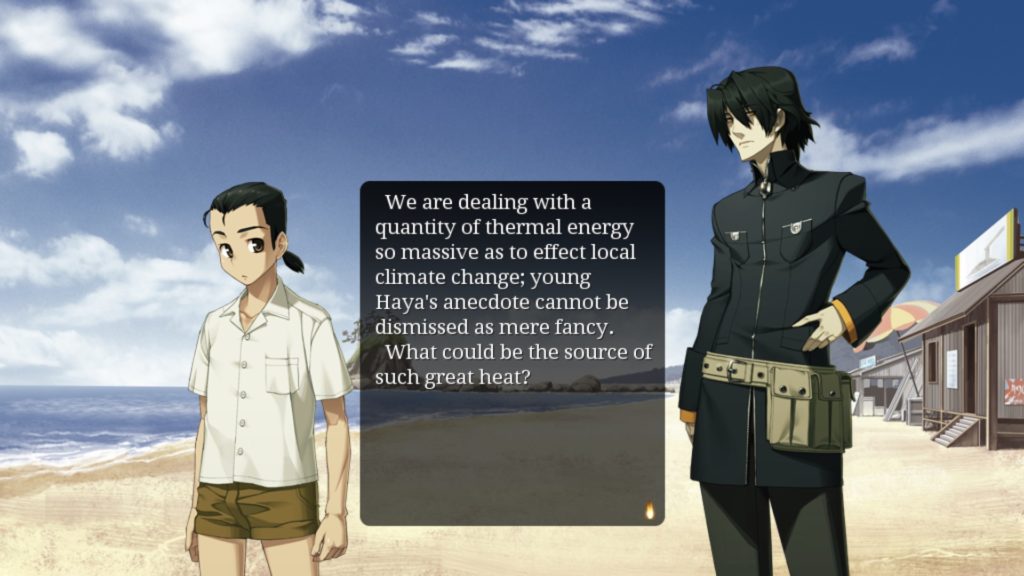
This is clearly demonstrated in his interaction with a child as part of the fourth chapter. After subtly using Muramasa’s command over magnetic fields to repair a family’s beloved toy, the eldest brother of the siblings catches up with him to thank him — even though he has no idea what he actually did. Minato’s response to the young boy is characteristically wordy and overblown, even by the general standards of Full Metal Daemon Muramasa’s already elaborately ornate prose, and the child calls him out on it.
“You know I’m just a kid, right?” the child asks him.
“You do appear young, yes,” responds Minato.
“If someone hears you being so polite to some random kid, they’ll think you’ve got no spine or something,” the child says, without a hint of malice.
We, the audience, on the other hand, know that this is exactly how Ayane used to look at Minato, due to his unwillingness to involve himself in unnecessary physical altercations — but we also know that Ayane subsequently came to understand what he is really about quite a bit better, resulting in the way in which she now follows him around with puppy-dog eyes.
“I do not subscribe to the notion that respecting others in any way diminishes my own worth,” responds Minato, matter-of-factly. “In fact, it is by not respecting others that we do ourselves the greatest disservice… my mother often said. Moreover, the maturity you’ve shown in taking responsibility for your younger siblings is, in my opinion, more than sufficient reason to treat you as a peer.”
Sound advice for us all there, I think — though one part of Minato’s assertion here will subsequently cause a few raised eyebrows given a revelation that occurs later in the chapter. But let’s put that to one side for the time being.
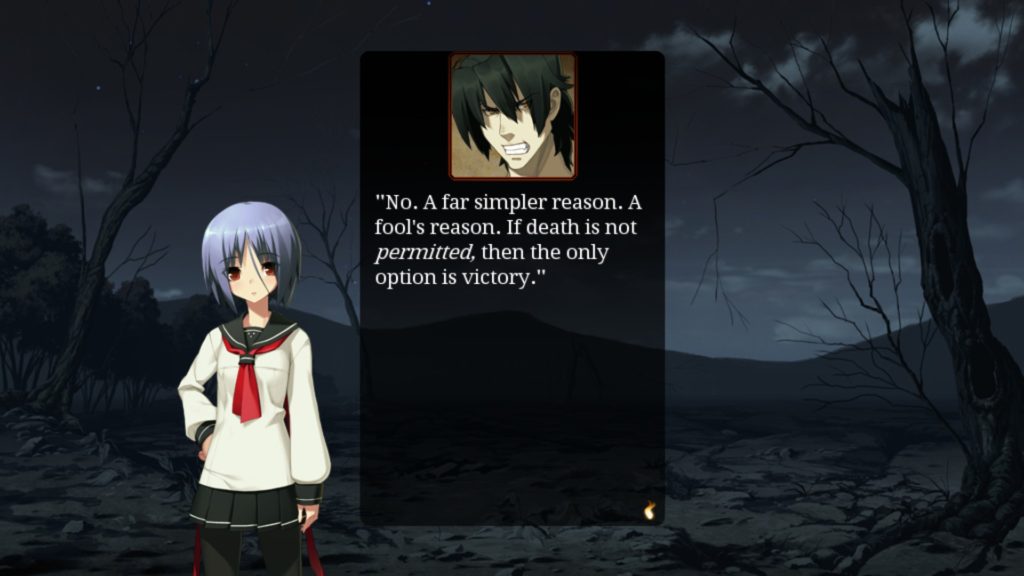
The main point is that what makes Minato interesting as a lead character is how he is such a study in contrasts. His pale, sickly appearance; the air of palpable gloom that surrounds him at all times (and which is often commented on by others); his inability to communicate effectively with all but a select few others — all of these things are seemingly contradicted by his desire to see villains brought to justice, and for dangerous situations to be resolved as conclusively as possible.
And then, of course, there’s another layer atop that in that having resolved said dangerous situation, there is something about his relationship with Muramasa that requires him to slaughter innocents alongside those who, for want of a better term, “deserved” to die. So what does that actually make him? Hero? Demon? Both?
It’s this aspect of his own identity that Minato habitually struggles with — though he appears pretty much convinced that he very much falls on the “demon” side of the spectrum. We, as the audience, however, are encouraged to question this constantly; we know the good he is capable of, we know the mental anguish and torment that having to perform “evil” acts inflicts on Minato, and we know that everything he does is ultimately an attempt to both save the world from destruction at Ginseigo’s hands — and to atone for some past sin which, at this point, isn’t altogether clear.
A spectacular musha battle that occurs as part of the fourth chapter shines a real spotlight on this inner turmoil Minato is constantly feeling. Distracted from taking on his real target — a giant tsurugi that literally uses captured humans as its “fuel” — Minato finds himself engaged in combat with recurring antagonist Sorimachi, who believes Minato to be a coward by not fully “committing” to one identity or another.
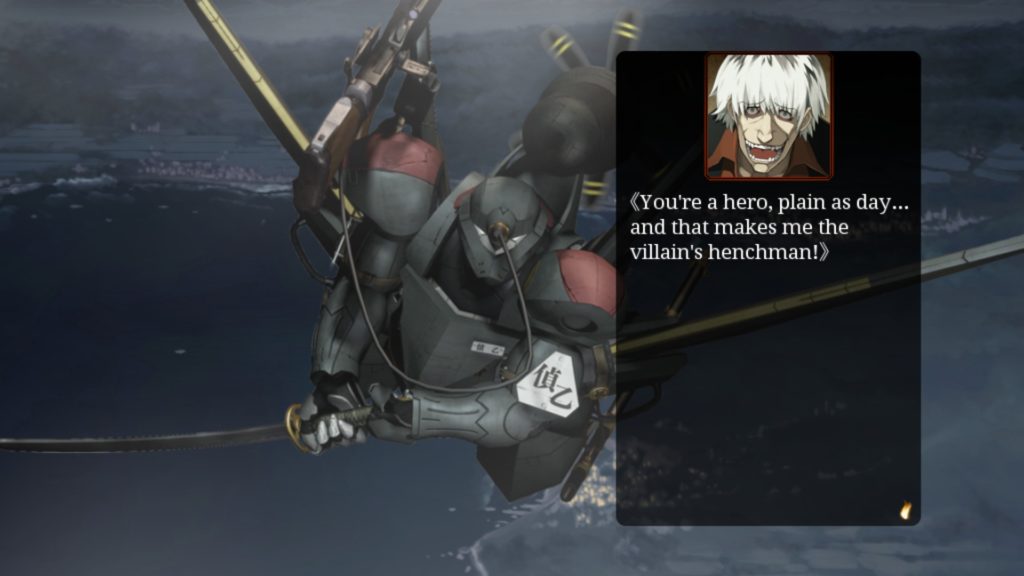
The argument arises when Minato refuses to kill Sorimachi; he had made a promise to himself that he would not kill unless absolutely necessary, and to his mind “absolutely necessary” means one of two specific things: the person he is killing is harbouring one of Ginseigo’s eggs, or that they are an innocent he is contractually obliged to slaughter in order to “balance” his “good” acts.
Sorimachi, although a recurring pain in the neck for everyone he crosses paths with, does not fall into either of these categories, so Minato refuses to kill him — even when Sorimachi manipulates the situation to a point where his own death is all but inevitable.
“You’re no hero, copper!” Sorimachi cries when, with the superhuman reflexes his partnership with Muramasa affords him, Minato manages to send his blade off-course for Sorimachi’s neck. “You don’t got what it takes! No way, no how!
“Did you sell your soul to rid the world of evil?” he continues taunting, referencing the legend of Muramasa and how her blade is cursed to slay both sinners and saints. “Tell yourself a few sacrifices were necessary for the greater good? Cool! That makes you a hero. But you gotta act the part, you see. A hero should be more proud of his achievements.
“Or what, you like killing?” he offers. “Cool! That makes you a demon. But if you’re a demon, you need to smile when you run your victims through. Else what’s the point? You’re no hero! You’re no demon! You’re just a worthless motherfucker who doesn’t know what he is!”
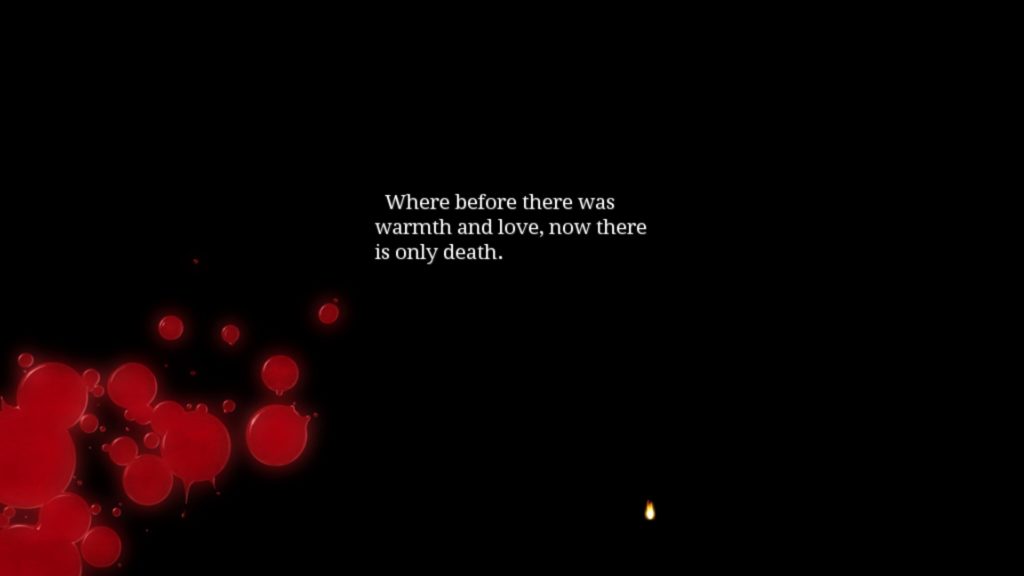
Here, Sorimachi is referencing an instance where, by chance, he happened to witness Minato murdering two innocent girls after the main troubles of the game’s second chapter were resolved. Minato took their lives with tears streaming down his face, which Sorimachi takes to mean that he is worthless and pathetic; unwilling to take either the “heroic” approach of letting them live, or the “demonic” approach of killing them with glee.
“You’re a worthless, half-assed piece of shit,” Sorimachi continues. “You wanna know why? Because you hate it. I watched you kill in the hut on the mountain. I watched you kill after the mess at the track. I could tell you hated every second of it… but you killed them anyway, didn’t you? If you hate it so much, don’t do it! If you don’t kill the bad guys, you don’t gotta kill the good guys! So why don’t you stop, huh?
“If you only know your own desires,” Sorimachi adds, “then that’s what you’ve gotta follow. So we think about it, and think about it, and when we’re satisfied it’s what we want, we do it. That’s how people, serious people, live. And that’s what makes this world so interesting! In hard times like these, everyone’s dead serious about everything! Living with all these people struggling to make their way… fighting with ’em, scheming with ’em, hell, just watching ’em! It’s so much fun!
“But you’re the only one,” he continues. “The only guy who’s doing what he’d rather cut his own balls off than do. You silly, silly motherfucker. Makes me sick, having a guy like you around. I wouldn’t be saying this if you’d just fucked off somewhere. You got nothing you wanna do, that’s your business. But you killed them. You killed them. You killed those kids, those little girls… and you didn’t even want to! You ever think what it’s like, huh? To die for something the asshole killing you ain’t even serious about? How stupid that must feel? How the fuck’re you supposed to rest in peace like that?”
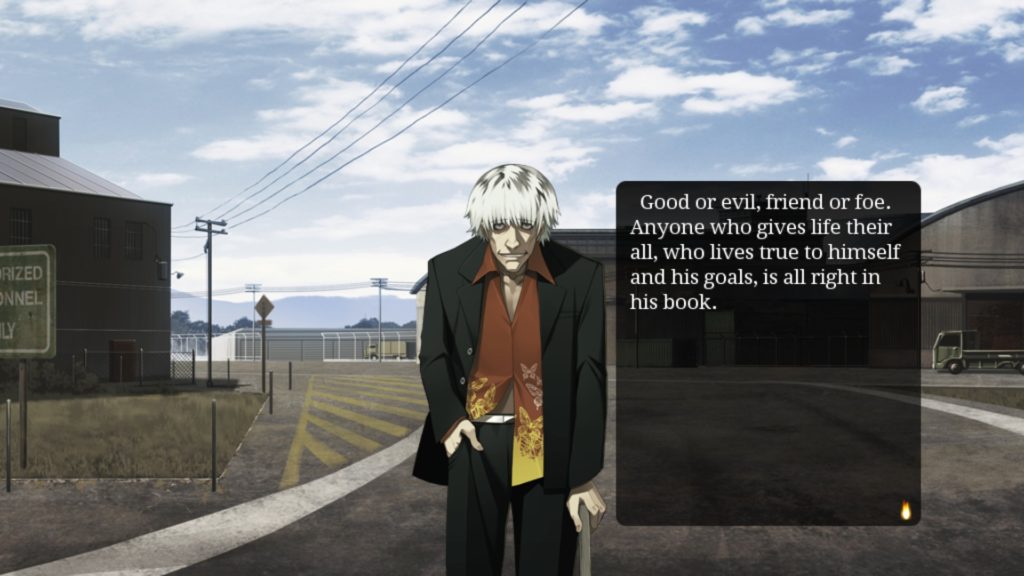
Sorimachi does, of course, kind of have a point here. Minato’s conflicted feelings are entirely understandable — but from his perspective, not knowing the entirety of the context in which Minato is obliged to behave the way he does, the things he is saying make perfect sense. It would seem an obvious solution for Minato to simply stop slaying the bad guys so he can stop slaying the good guys — but we, of course, know that this simply isn’t an option. And, moreover, Sorimachi’s view of “heroes” and “demons” is just one way of looking at things.
“It doesn’t matter what my reasons were, or whether I had a reason at all,” Minato muses to himself following Sorimachi’s tirade. “All that matters is what I did to them. To him. To her. I killed them of my own free will. I killed them to serve my purpose. See? You do understand, Sorimachi. So why can’t you make the final connection? That is what makes a demon. His feelings aren’t important. Whether he laughs with joy or howls in disgust, a man who kills for himself is a demon.
“No. The man who kills for a cause is no different,” Minato adds. “Heroes, soldiers, warriors of every sort — these are demons too. All who kill are demons. What separates good from evil? One thing, and one thing only. The ability to reject the value of a life. That is the answer. That is everything. And I have faith in my evil!”
What’s interesting about this declaration from Minato is that we can very much question whether or not he really “rejects the value of a life”, as he puts it. Because although on the one hand, killing innocents would appear to be an absolutely clear bit of evidence that he does reject the value of those innocents’ lives, the fact that the deaths of those innocents continue to weigh on his mind is evidence that he perhaps has not rejected and discarded them as easily as he might want to believe.
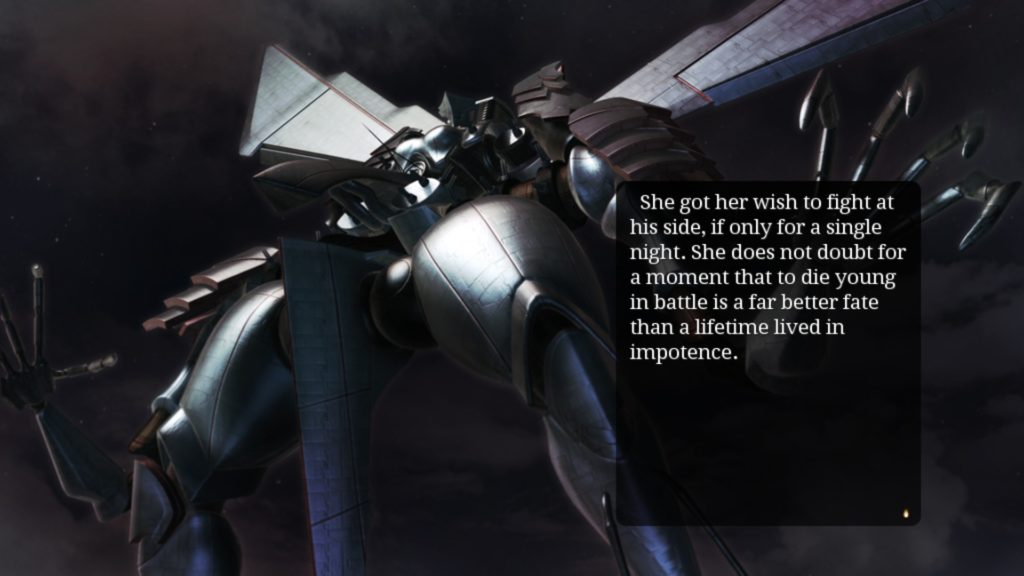
“She saw through my lies, my misdirections,” Minato pondered upon the passing of Otori by his own hand at the conclusion of the previous chapter. “She knew me for what I am. But then, why is she dead now? Why did she allow me to kill her? She could have taken my life a hundred times. It would have been so easy, if she truly did not trust me. So why — No. Surely not. Could she have wanted to trust me?
“I have no answer. And now, she cannot offer one. I can only look upon her silent corpse — and tremble in horror at the knowledge that I have lost someone I desperately needed.”
I don’t know about you, but that doesn’t sound like the words of someone who truly rejects the value of life to me. And, indeed, on the conclusion of the chapter, when Ichijo Ayane also perishes at Minato’s hand (at least she did in my playthrough), we see further evidence of this. He wants her to die before she is aware of his betrayal; he wants her to pass on still believing in the figure of unrelenting justice she believes him to be, not the immovable force of “balance” he actually is obliged to act as.
Full Metal Daemon Muramasa is available now from JAST USA. A “streamer-friendly” version is available on GOG.com.
Join The Discussion
Rice Digital Discord
Rice Digital Twitter
Rice Digital Facebook
Or write us a letter for the Rice Digital Friday Letters Page by clicking here!
Disclosure: Some links in this article may be affiliate links, which means we may earn a small commission if you make a purchase after clicking on them. This is at no additional cost to you and helps support Rice Digital!
- Letter from the Editor: passing the torch - June 30, 2023
- Super Woden GP 2 is looking promising - June 30, 2023
- Inti Creates is making a 32 bit-style Love Live action platformer - June 26, 2023






